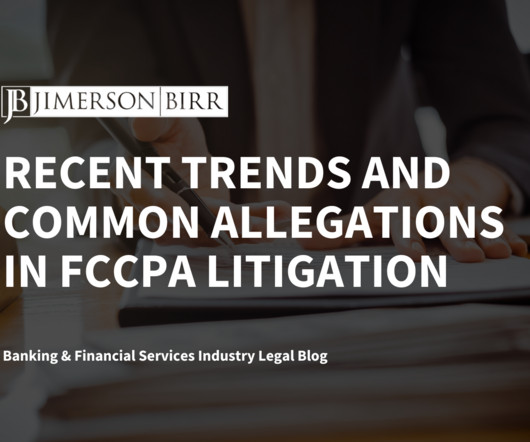Dealing with Debt Collectors
Debt Free Colorado
FEBRUARY 21, 2022
We work hard to ensure that our clients have a thorough understanding of their legal alternatives to make informed financial decisions for themselves and their families. In this article we will answer the question: What can debt collectors do to you? Does Colorado Law Protect Me From Debt Collectors?













Let's personalize your content